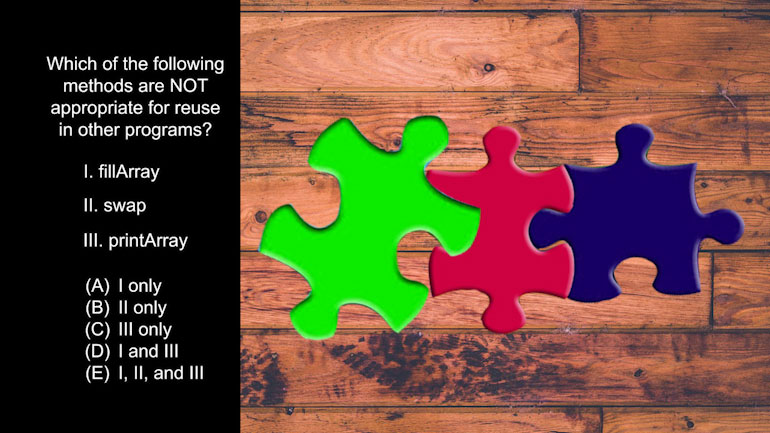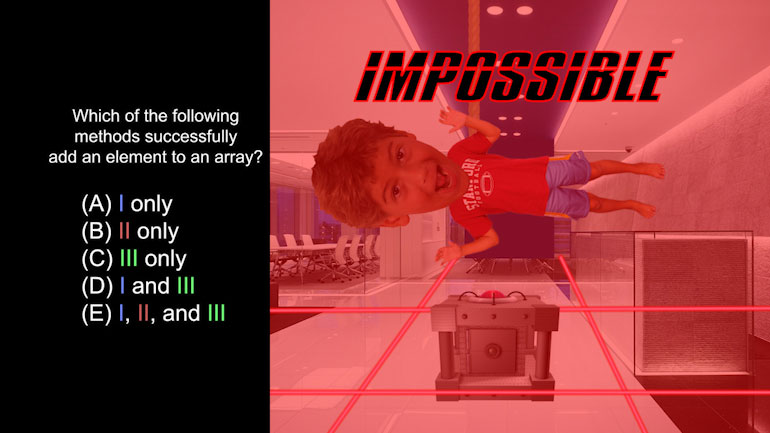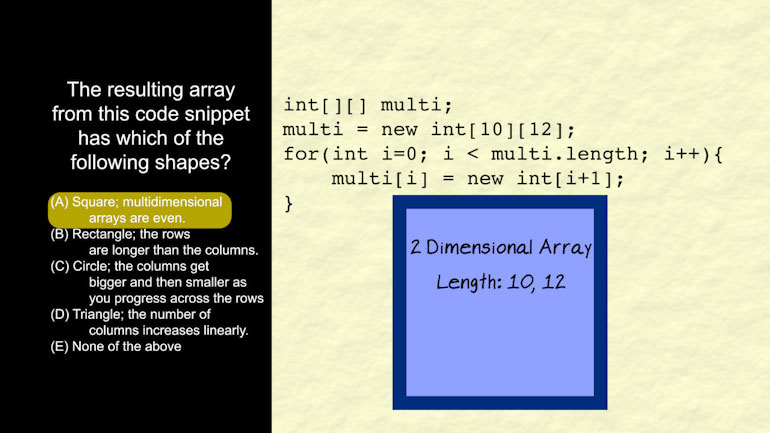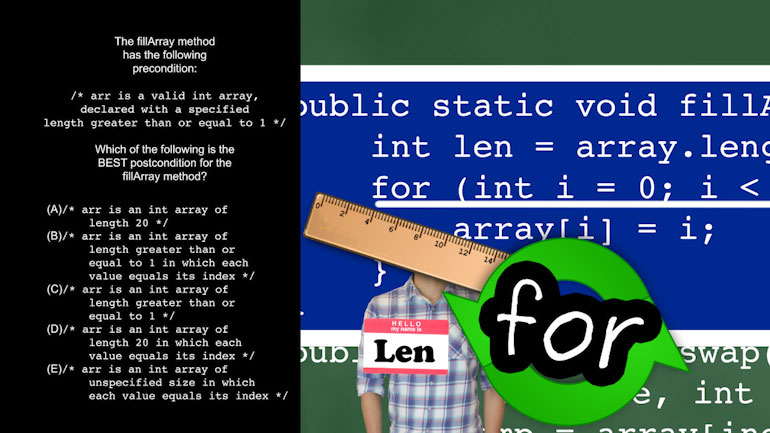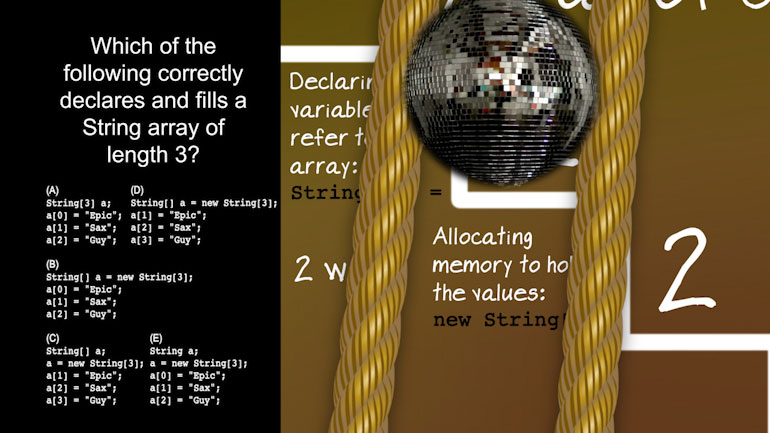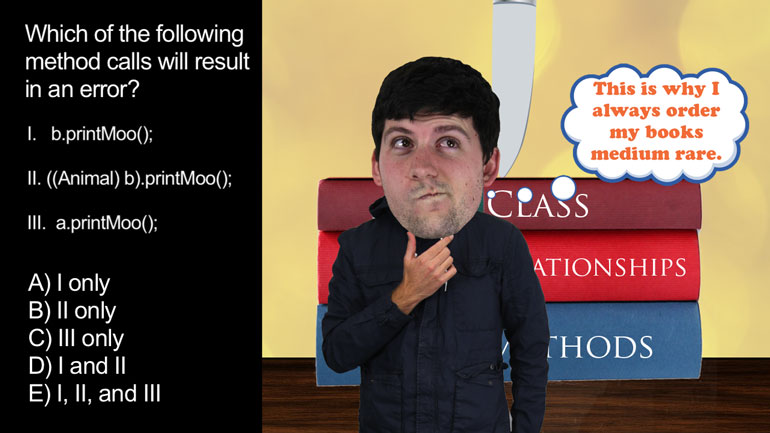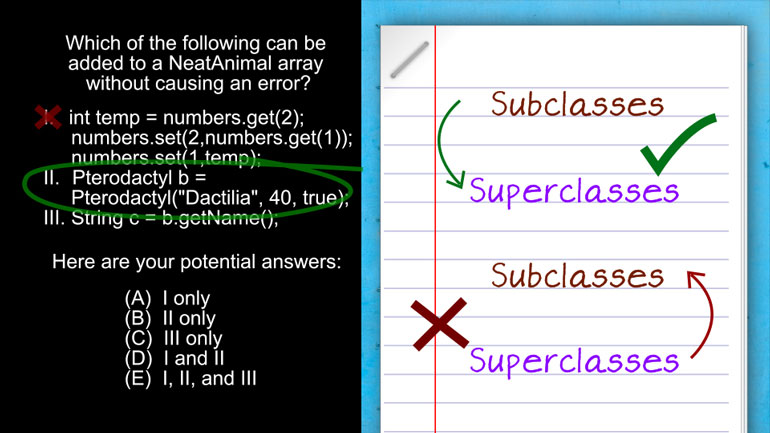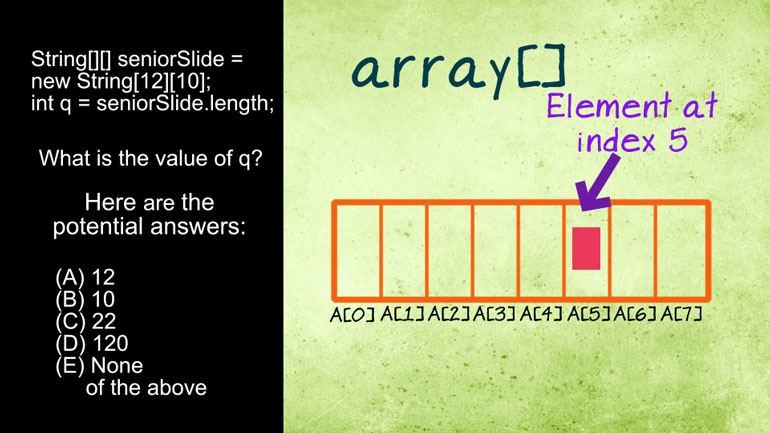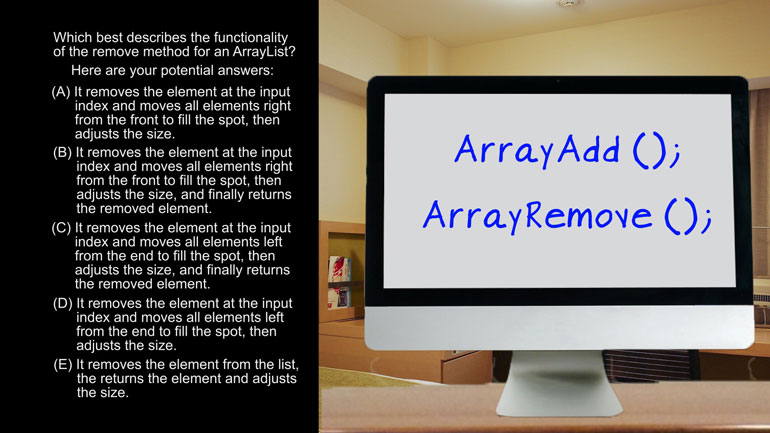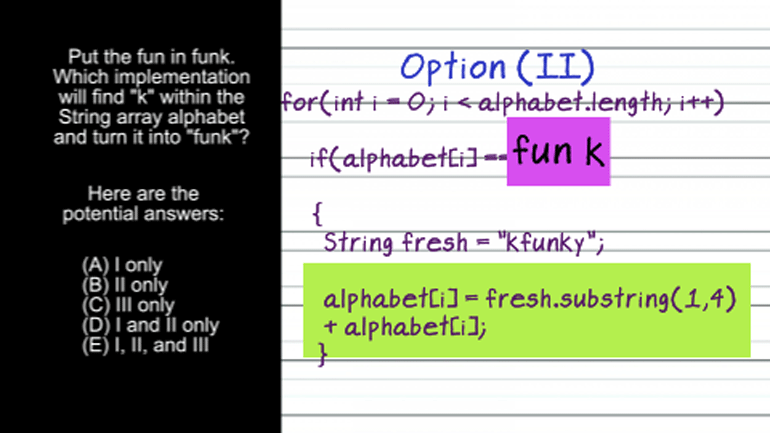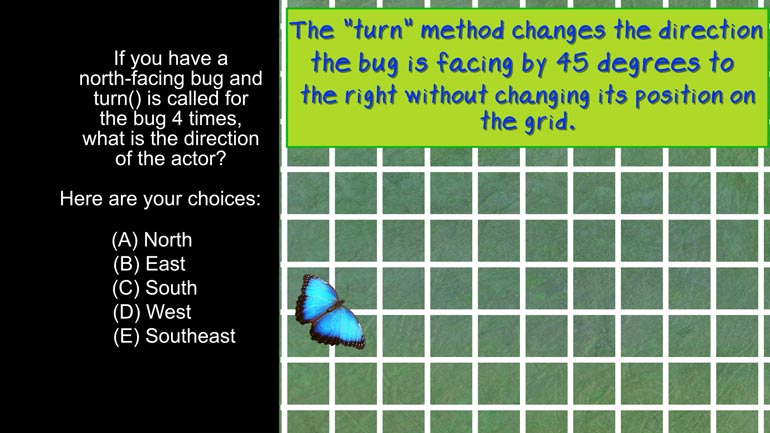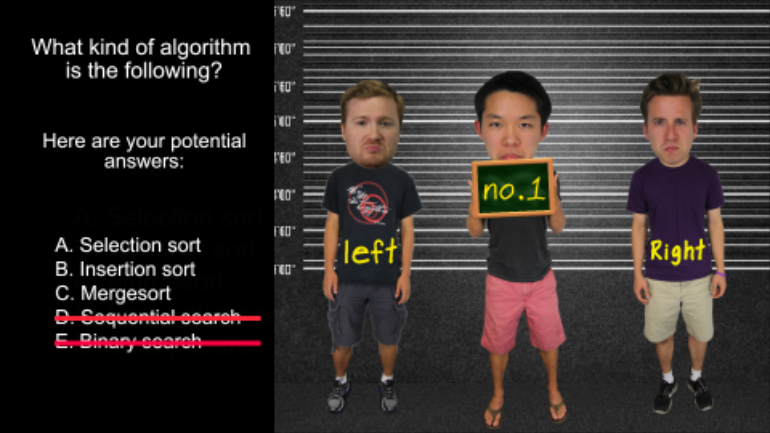ShmoopTube
Where Monty Python meets your 10th grade teacher.
Search Thousands of Shmoop Videos
Standard Data Structures Videos 18 videos
APCS: Standard Data Structures Drill 1, Problem 2. Which of the following methods are not appropriate for reuse in other programs?
AP Computer Science 3.2 Standard Data Structures. Which of the following methods successfully add an element to the array?
AP Computer Science: Standard Data Structures Drill 3, Problem 5. The resulting array from this code snippet has which of the following shapes?
AP Computer Science 3.4 Standard Data Structures 5 Views
Share It!
Description:
AP Computer Science 3.4 Standard Data Structures. Which best describes the functionality of the remove method for an ArrayList?
Transcript
- 00:04
And here's your shmoop du jour brought to you by an iterating
- 00:06
ArrayList it'll throw you for a loop all right which best describes the [People riding rollercoaster]
- 00:11
functionality of the remove method for an ArrayList at your potential answers
- 00:16
lot of text......... all right arrays that array
- 00:24
lists are similar but standard arrays have some limitations the biggest tubing [Man blowing whistle with stop sign]
Full Transcript
- 00:28
that arrays have a fixed size and that elements can't be added or removed this
- 00:33
once you build an array you're pretty much stuck with the original size you [Man moving array side to side]
- 00:37
specify yeah you can find ways to sidestep it you can write methods to
- 00:42
build a new array consisting of an old arrays contents plus or minus whatever
- 00:46
elements you want to add or remove but it's a little janky though and at that [Computer burning]
- 00:52
point you're just recreating a lesser version of an ArrayList so you may as [Man throwing work on his desk]
- 00:56
well ride dragons look at you so ArrayList removed metal works much like [Man riding a dragon]
- 01:01
you'd expect let's say we have four elements in an array list called the
- 01:05
scene bad movies jingle all the way police academy first kid and house cast
- 01:11
our police academy isn't a sin bad movie so we'll remove it from the arraylist [Police men talking on the street]
- 01:15
and there it goes with trailing thing's sliding upward in line but now
- 01:20
let's look at the potential answers would fit option a well it removes the
- 01:24
element at the input index and moves all elements right this way from the front
- 01:30
fill the spot and adjust the size wait whose elements to the right mmm nope [Man looking confused]
- 01:35
that's not what happens houseguests moved left trailing elements will always
- 01:40
move left why because indexing always begin to add zero option B also says
- 01:46
things move the right which isn't going to work option C well it removes the
- 01:50
element at the input index 0 so far so good and we move all the elements left
- 01:54
from in to fill the spot and yep adjust the size right and returns the remove
- 01:59
element yeah all right the remove method does indeed [Remove method lands in middle of road]
- 02:03
returned the element you've just removed in case you needed it for something so C
- 02:08
looks like our answer but let's check the other B is the same answer C but
- 02:11
without returning your moved element so no option E removes the element from
- 02:15
the list returns the element and so on but doesn't mention anything about
- 02:18
moving the remaining elements all rights are there now that wasn't Sinbad or so
- 02:24
bad was it [Man singing on stage]
Related Videos
AP Computer Science 1.2 GridWorld Case Study and APIs. What is the direction of the actor?
AP Computer Science 1.4 Standard Algorithms. How many times will mystery be called for mystery(n) for n > 1?
AP Computer Science 2.3 Classes and Objects. Which of the following is correct implementation of the Country class?
AP Computer Science 3.4 Inheritance, Abstraction, and Polymorphism. Which of the following will satisfy the conditional if statement for boo, str,...
AP Computer Science 4.2 Standard Algorithms. What kind of algorithm is the following?
